Paitoon Panchaiyabhum, of the Phuket Marine Biological Centre, told the gathering at Rawai municipal offices in southern Phuket that the Navy plans to have helicopter pads approved for other islands off Phuket.
Access for helicopters would enable the speedy rescue of tourists and residents who suffered accidents or health issues in remote places, Khun Paitoon said.
There were times when helicopters could fly even if heavy seas prevented vessels from putting to sea, he added.
The helicopter rescue pads were the brainchild of former Vice Admiral Supot Pruksa, who headed Royal Thai Navy 3, which has bases on Phuket and in Phang Nga, back in 2008.
What is not well known is that his plan for the helicopter pads sprang from a personal tragedy. His nephew, a young man on a navy exercise, died for want of assistance in tragic circumstances where the weather prevented his rescue.
A helicopter pad may have saved his life. National Parks officials have so far resisted the idea of putting helicopter pads on the Similans and Surin island, far more remote from Phuket than Racha.
One of Vice Admiral Supot's activities was in setting up a beachfront navy office in Patong, where about 20 sailors were at one stage available on a daily basis to help tourists if required.
Phuketwan has suggested that Royal Thai Navy officers should patrol Patong beach and intervene in disputes between jet-ski operators and tourists, taking the workload off Phuket's under-resourced police.

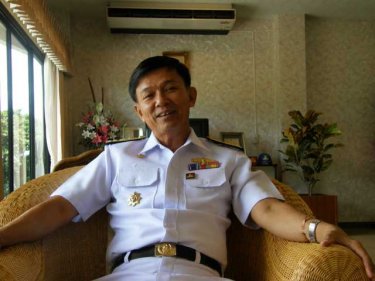


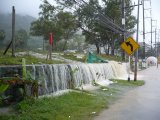
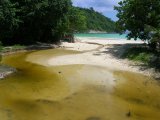
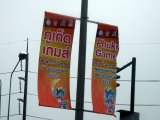
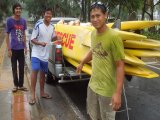



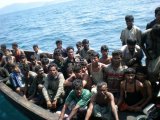
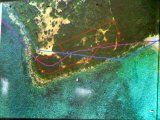
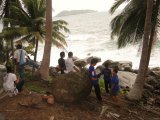



Cart before the horse. What is needed first is a properly equipped rescue helicopter with fully trained crew. If one was to exist, I have my doubts, it would not need a landing pad to effect rescue. Sydney - Hobart yacht race comes to mind as well as many other rescues world wide.
Posted by interested observer on May 29, 2012 13:27